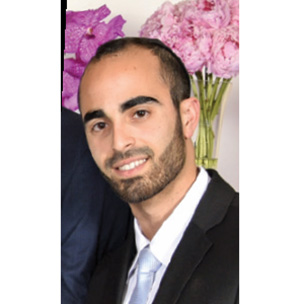
Some might say: If I knew what my mission in life was, I would do it like nobody’s business. If God Himself came to me and told me what the purpose of life is all about, what I need to do, what is right and what is wrong, I would follow it down to a tee. Let’s discuss why this is an unreliable statement, even if in theory this were to occur.
On his way to curse the Jews, Bilaam’s donkey wasn’t cooperating with Bilaam, and Bilam hit it, but he was not satisfied. He tells his donkey, “Because you have mocked me, if I were to have a sword in my hand right now I would kill you” (Bamidbar 22:29). Why in the world would Balaam kill his donkey? Doesn’t he still need it in order to get to his destination!? R’ Zelig Pliskin quotes from R’ Yosef Dov Soloveitchik of Brisk Yerushalayim that, indeed, Bilaam acted irrationally due to his desire for honor. Therefore, when the donkey humiliated him, he considered it a slight to his honor and he thus wanted to kill it, even though he needed his donkey to get to his destination.
We all have our “destinations” in life, the small goals and the bigger goals. Some of those destinations are related to this world, some of them are in the realm of the next world. We may know clearly that we have a destination, but yet if we don’t work on basic character traits we may never end up reaching them, and we might even be willing to throw those destinations out the window. Bilaam had a destination but seemingly was ready to give it all up just for the sake of avenging his honor. His faulty character trait of desiring honor could have marred his reaching his destination. But the pursuit of honor is not the only character trait that can impinge on our ability to reach our destinations…
Bilaam said, “Let me die the death of the upright” (Ibid 23:10). Why is Bilaam saying he wanted to die the death of good people, those who are upright? How does that make any sense? Wasn’t Bilaam a despicable person who lived his life in a state of utter immorality and seeming hate for the Jews!? Rav Simcha Zissel gives a groundbreaking explanation of who Bilaam really was. He says that Bilaam really knew the proper way to live, he knew what was truly correct and just. However, the reason why he failed to live up to his intellectual awareness of the truth is because he did not work on his midot.
We see here that one who does not work on his midot can have the most ideal aspirations and set-in-stone principles of life, but yet can fail to achieve them due to the lack of attaining a mastery over his character. He or she might know the purpose and mission of life, and can even be firmly attached to Torah, but if the midot are lacking it all might go nowhere. Destination are destinations, but the way to get there is through a strong foundation in proper character traits, and constantly working to gain control over one’s midot. Some midot need to be eradicated, some need to be channeled, and some need to be strengthened. Whatever the case may be, a person must be constantly involved in this discipline in order to attain self-discipline. One who learns about his midot, discovers what is good and what is bad, understands where to use what midah in what measure in what circumstances, etc., is what eventually gives a person the keys to use or lose one’s traits in the right measure, time and place.
Even if one has an unshakable understanding of what the whole purpose of life is, and even if God Himself came to a person and told him exactly what his mission in life is, at the end of the day if a person does not engage in self-reflection and improvement of one’s natural tendencies and impulses, one’s aspirations towards reaching the goal can never be reached. The Torah precedes by teaching about the lives of many people, particularly the Avot (Avraham, Yitzchak and Yaakov), rather than starting from Matan Torah, and I thought perhaps this is to teach us that middot (which we learn from many of those people and particularly the Avot) are the foundation for Torah and life itself. When a person has this foundation, that’s when life really starts.
By Binyamin Benji
Binyamin Benji is a graduate of Yeshivas Rabbeinu Yitzchak Elchanan, and Wurzweiler School of Social Work. He currently learns in Lakewood and is the author of the Sephardic Congregation of Paramus’ weekly Torah Talk. He can be reached at benjibenji26@gmail.com.










